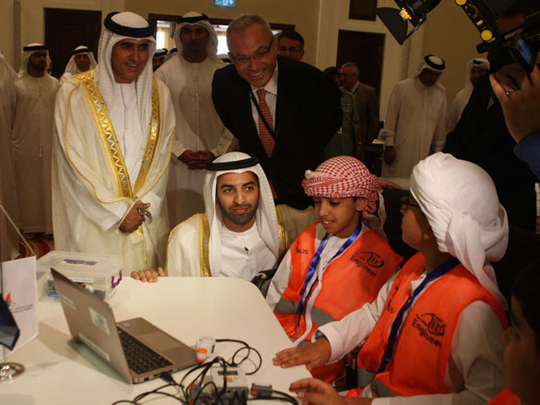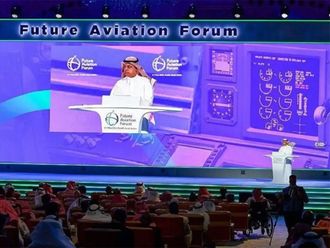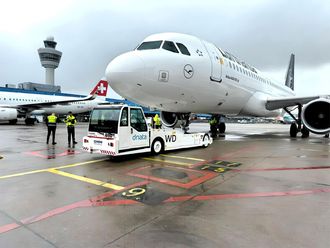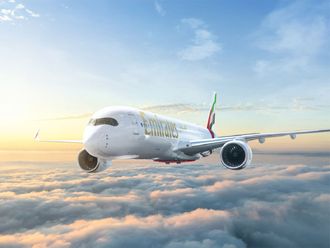
Ras Al Khaimah: Arab airlines are expected to post a $700 million (Dh2.5 billion) combined profit this year, down from last year’s $800 million, as carriers reel from geopolitical issues stretching across the region from Iraq to Libya.
Abdul Wahab Teffaha, Secretary General of the 31-member Arab Air Carriers Organisation (AACO), however, was buoyant on his organisation’s 2014 forecast, and pointed to the Arabian Gulf, saying some airlines will grow this year.
Airline revenues have been hit as many routes in the region have been altered or axed in response to increasing violence.
Hussain Dabbas, regional vice president of the International Air Transport Association (IATA), said flights over Iran had increased from 350 a day to more than 800 in response to airlines avoiding Iraqi airspace. The change in route plans mean extra fuel charges for airlines.
Teffaha and Dabbas spoke to reporters on the sidelines of the Arab Aviation and Media Summit in Ras Al Khaimah.
Visa restrictions
Earlier, in an address at the summit, Teffaha was critical of the region’s “archaic” regulatory regime.
He singled out visa restrictions among Arabs travelling to other Arab countries as well as freedom of movement for travellers in the Arab world. He said less rigid visa restriction would drive revenues into regional economies.
Teffaha was also critical of “the shortcomings” of the air traffic management systems in the region which he said should be more harmonised, similar to Europe’s Eurocontrol.
Eurocontrol, the European Organisation for the Safety of Air Navigation, is responsible for coordinating and planning aviation routes across Europe. In the Middle East each country is predominantly responsible for its own airspace.
The six-member Gulf Cooperation Council (GCC) states, including the United Arab Emirates, are in discussions to implement a regional air traffic system. However, many in the regions aviation sector has been critical of the little movement among the Arab Gulf countries.
Teffaha, speaking of the wider region, said Arab aviation regulators are not moving “quickly enough”, adding that despite government efforts “we need to see results faster”.
Much of the criticism stems from the amount of airspace in the region restricted for the military, which is nearly 50 per cent.












